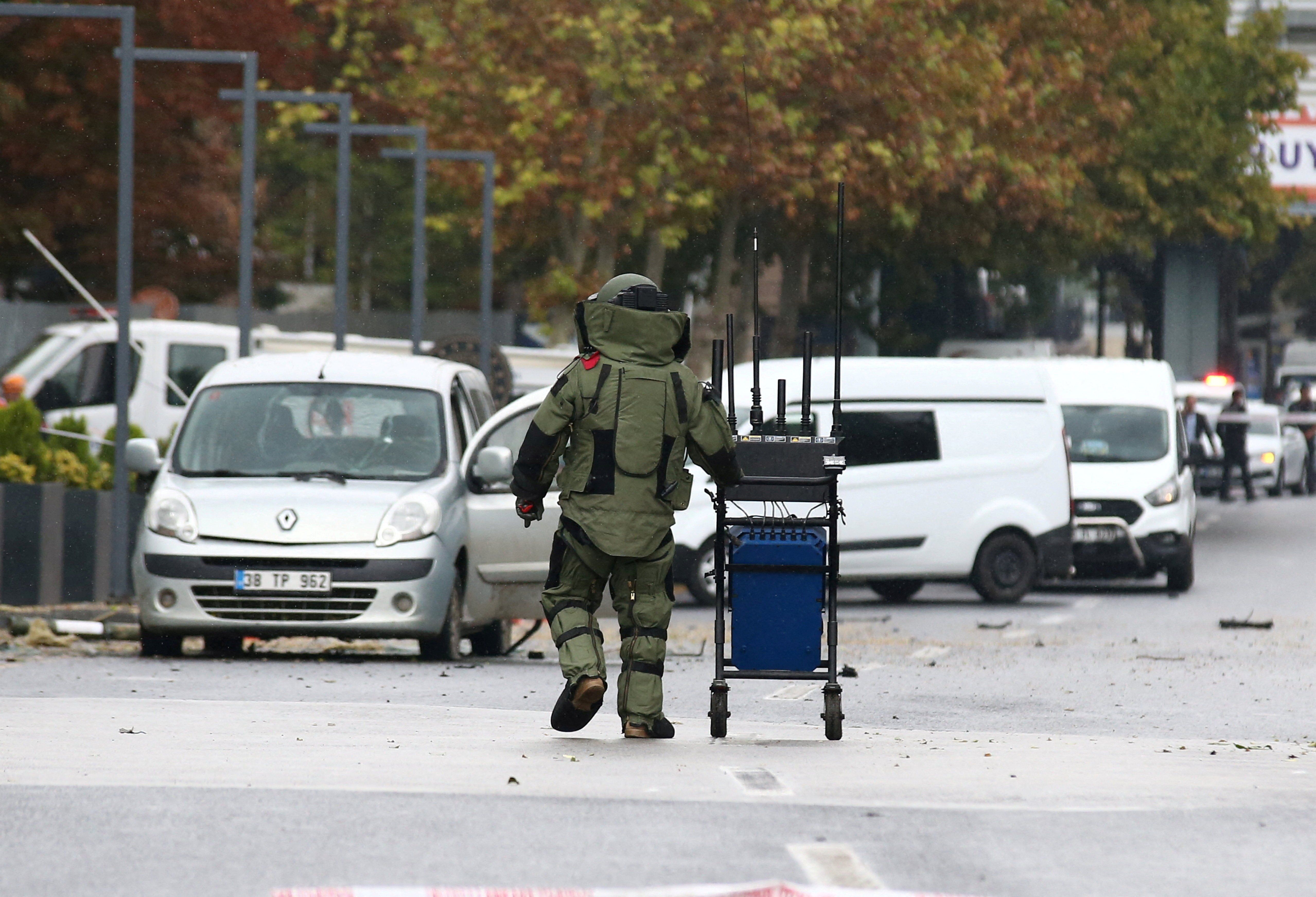The US military on Thursday shot down a Turkish drone in northeast Syria, a remarkable development pitting two NATO states with an already complicated alliance against one another.
The Pentagon said that it warned Ankara several times beforehand that its hardware was too close to US troops stationed there, and that it made the decision to strike when the Turkish drone came within 500 meters of US personnel.
How’d we get here? As part of its decade-long mission to abolish the Islamic State in Syria and Iraq, the US still has 900 troops operating in northern Syria. They work mainly with the Syrian Democratic Forces – a ragtag group of anti-regime militias including many Kurdish fighters.
Turkey, for its part, has long considered the Kurdistan Workers’ Party, known as the PKK, to be a terror group and has regularly launched operations in northern Syria aimed at rooting them out. What’s more, in recent days, Ankara has launched a fresh bombing campaign against Kurdish forces in Syria after a recent suicide bombing outside Turkey’s security headquarters in the capital – attributed to PKK members trained in Syria – killed two people.
Turkish Foreign Minister Hakan Fidan said this week that PKK infrastructure and energy facilities in Syria and Iraq are “legitimate targets,” but the Pentagon came to believe that Turkey’s bombardment was imperiling US troops.
Washington is trying to de-escalate. US Defense Secretary Lloyd Austin said on Thursday that he’d spoken to his Turkish counterpart and emphasized that Washington understands Ankara’s “legitimate security concerns.”
The US, along with its EU partners, has been pushing in recent months for Ankara to give the greenlight to Sweden to join NATO. But Turkey says that’ll only happen when the US agrees to sell it F-16 fighter jets, something the US has so far refused to do in part because of disagreements over relations with Russia and … conflicting operations in Syria.
Relations between the US and Turkey were already very messy, particularly since 2019, when Ankara purchased Russian S-400 missile defense systems. This event will only generate more bad will.
More For You
100 million: The number of people expected to watch the Super Bowl halftime performance with Bad Bunny, the Puerto Rican superstar and newly minted Album of the Year winner at the Grammys.
Most Popular
Think you know what's going on around the world? Here's your chance to prove it.
An imminent US airstrike on iran is not only possible, it's probable.
Americans are moving less — and renting more. Cooling migration and rising vacancy rates, especially across the Sunbelt, have flattened rent growth and given renters new leverage. For many lower-income households, that relief is beginning to show up in discretionary spending. Explore what's changing in US housing by subscribing to Bank of America Institute.
